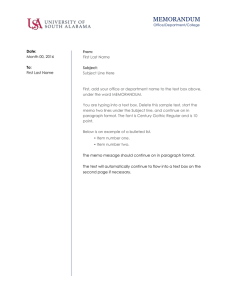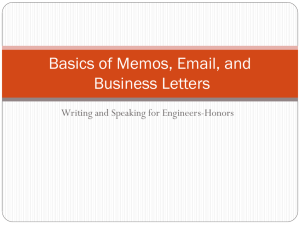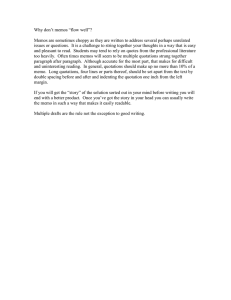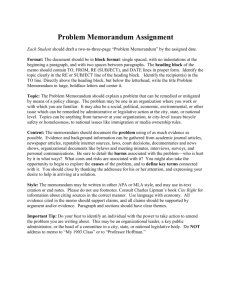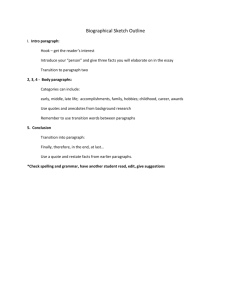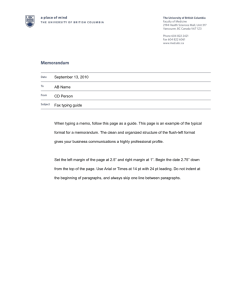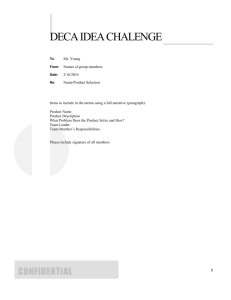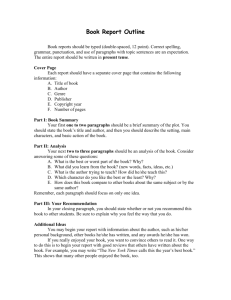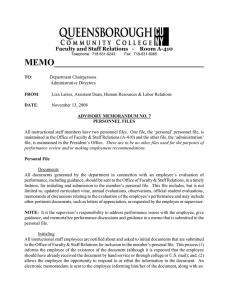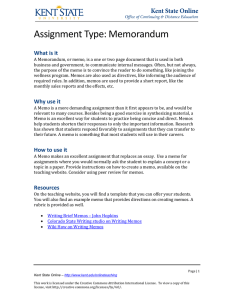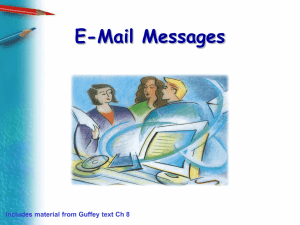Construction Skills Fundamentals
advertisement
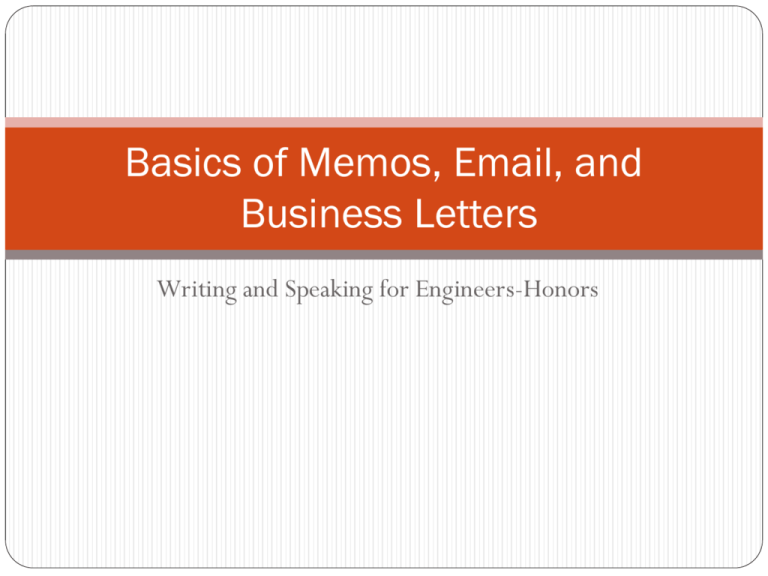
Basics of Memos, Email, and Business Letters Writing and Speaking for Engineers-Honors Basic Forms of Written Communication In the business setting, two basic forms of written communication are used: Memoranda Business Letters Memos A memorandum is a less formal type of document used within a company A memorandum is used primarily to advise people of procedures, procedural changes, or disciplinary issues A memorandum contains lines for the following: To: From: Date: Subject: Subject Lines The subject line in a memo (and an email) should be concise but specific. The following is a poor subject line: Subject: Update A more specific subject line might read: Subject: Update on Project UF – 332, Addition to Ben Hill Griffin Stadium at the University of Florida Business Letters A business letter is used between individuals who work for different companies (the owner and the contractor or the architect and the contractor, for example) A business letter is more formal in its structure A business letter contains the date, the sender’s address, the recipient’s name and address, a salutation, a complimentary closing, and the names of those receiving copies of the letter Effectively Organizing Letters, Memo, and Email Organizational Pattern Introduction Body of Message Conclusion Introduction All written correspondence should have an introduction that Makes the purpose of the communication clear Gives the reader the most important information Body of the Message The supporting details are included in body paragraphs Elaborate on the main idea(s) contained in the introduction Use short paragraphs with topic sentences for each paragraph Use short sentences Use headings and bullets where appropriate Conclusion (Goodwill closing) Convey “next step” information Offer contact information Bad News Message: Use an alternate pattern When conveying “bad news” (disciplining an employee or explaining a negative action) use a buffer paragraph at the beginning of the message. The pattern used for bad news is as follows: Buffer paragraph Introduction Body of the Message Conclusion
